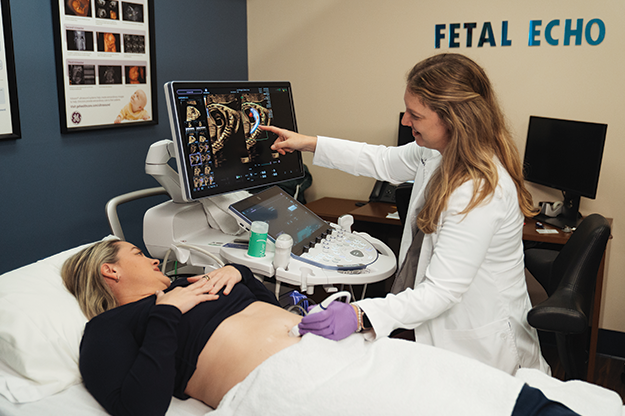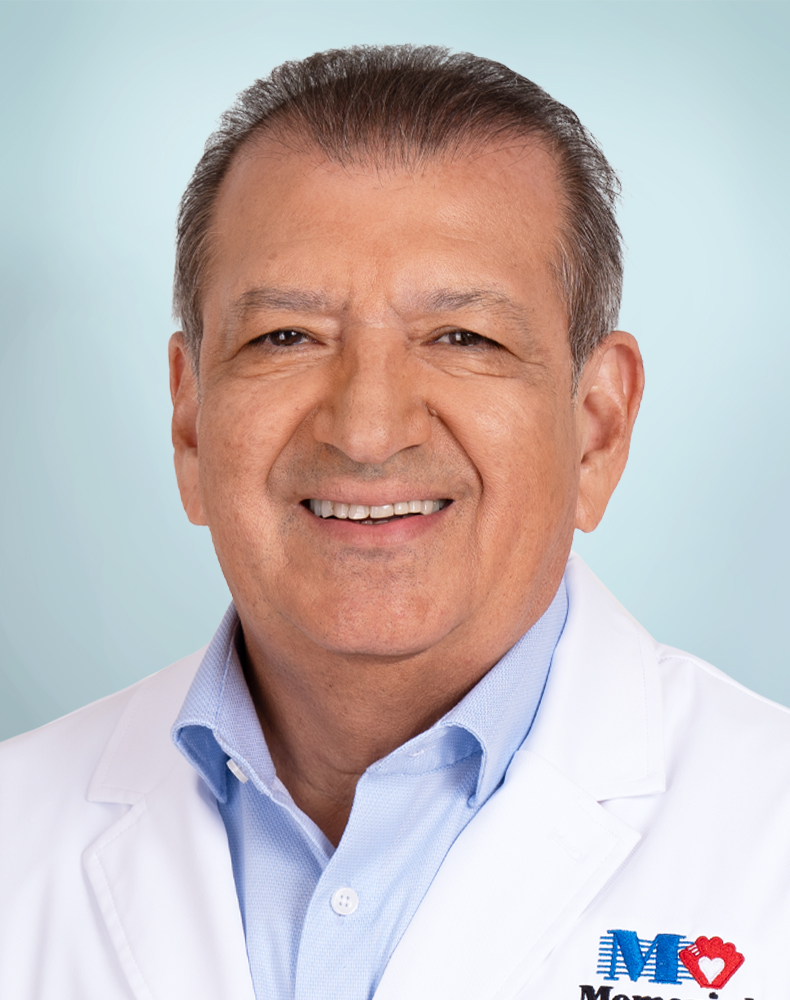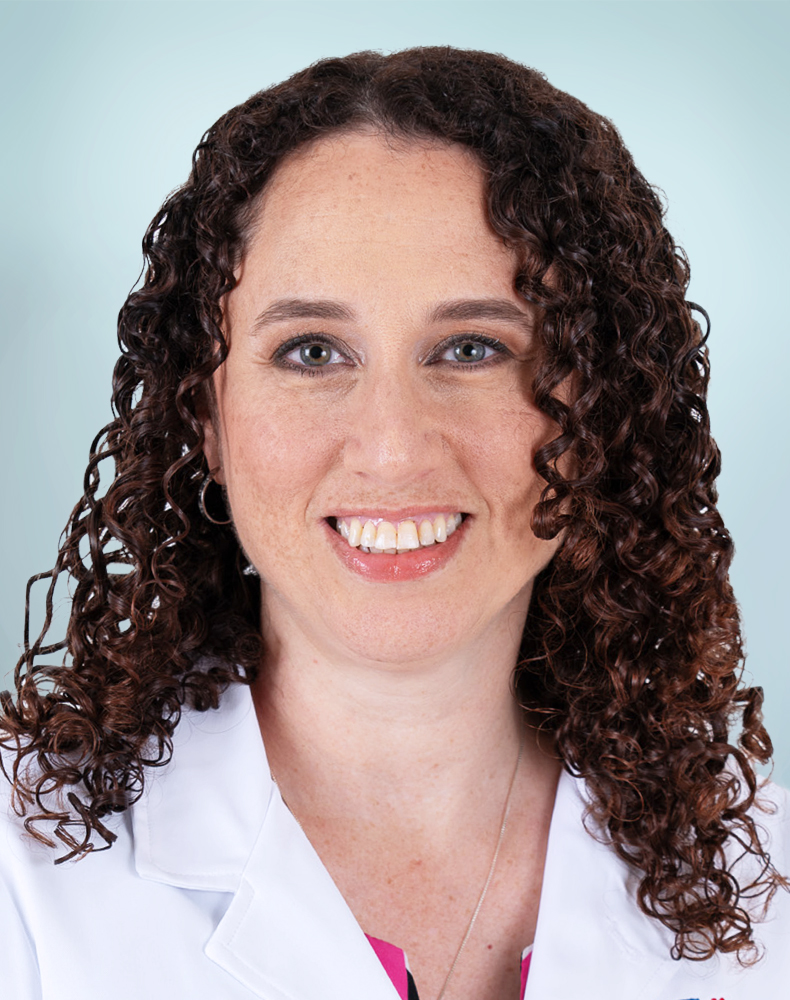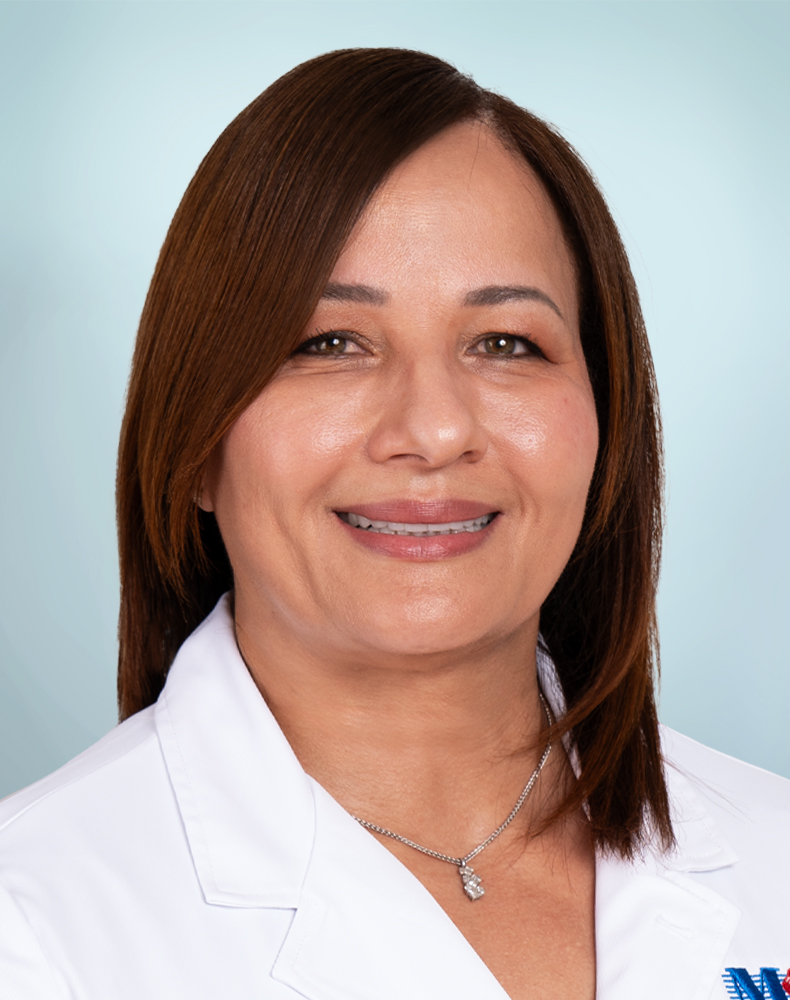
Fetal Heart Diagnostic Testing
Our advanced imaging techniques help us accurately diagnose fetal heart conditions.
Accurately diagnosing a fetal heart condition is vital to ensuring your baby receives comprehensive care before and after birth. If a routine ultrasound by your obstetrician (OB) reveals a possible problem with your baby’s heart, you will need additional tests.
Our specialized ultrasound technicians (fetal cardiac sonographers) use advanced scanning technology that can detect most congenital heart defects and structural abnormalities. Our fetal cardiologists use these detailed images to make a precise diagnosis.
Types of Fetal Heart Diagnostic Testing We Offer
To accurately diagnose heart defects during pregnancy, we use noninvasive heart imaging tests, including:
- Fetal echocardiogram (echo): A fetal echo is an ultrasound that creates detailed images of your baby’s heart. It can show the heart structure, blood flow through the heart, and irregular heart rhythms.
- Fetal cardiac MRI: This test uses high-intensity magnets to produce detailed images of your baby’s heart. You may have this scan in addition to a fetal echo to obtain further detailed images of your baby’s heart.
- Fetal MRI: This test uses high-intensity magnets to produce detailed images of other organs in your baby’s body that are challenging to evaluate on ultrasound, including the baby’s brain and lungs. You may have this scan in addition to a fetal echo if your baby has multiple health conditions.
Who Should Get a Fetal Heart Scan
For most pregnancies, routine ultrasounds at your OB’s office provide enough information about your baby’s development. However, if tests show a potential heart defect, you may require advanced fetal heart scans.
Other reasons your doctor may request an advanced fetal heart scan include:
- Inability to see the baby’s heart structures well or concern for a heart defect on OB ultrasound.
- Chromosomal or genetic anomaly (revealed through amniocentesis or other genetic testing).
- Family history of congenital heart disease in a first degree relative (i.e., parents or siblings).
- History of diabetes, autoimmune disease (i.e., lupus), connective tissue disease (i.e., Marfan’s or Loetz Dietz), or phenylketonuria in the mother.
- Product of in vitro fertilization.
- Multiple births (pregnant with two or more babies).
- Other health conditions in the baby that may indicate increased risk for a heart defect.
- Advanced maternal age (over 35 years).
- Use of some medications during pregnancy.
- Drug or alcohol use during pregnancy.
Our Fetal Heart Locations
Hollywood
- 3801 Hollywood Boulevard, Suite 350, Hollywood, FL, 33021
- 1150 North 35th Avenue, Suite 490, Hollywood, FL, 33021
Fort Lauderdale
- 1625 SE 3rd Avenue, Suite 415A, Fort Lauderdale, FL, 33316
Pembroke Pines
- 12295 Taft Street, Pembroke Pines, FL, 33026
Plantation
- 1222 North University Drive, Plantation, FL, 33322
Boca Raton
- 5458 Town Center Road, Suite 102, Boca Raton, FL, 33486
Jupiter
- 345 Jupiter Lakes Boulevard, Suite 302 A&B, Jupiter, FL 33458
Wellington
- 3377 South State Road 7, Wellington, FL 33449
Port St. Lucie
- 1850 SW Fountainview Boulevard, Suite 201, Port St. Lucie, FL, 34986












